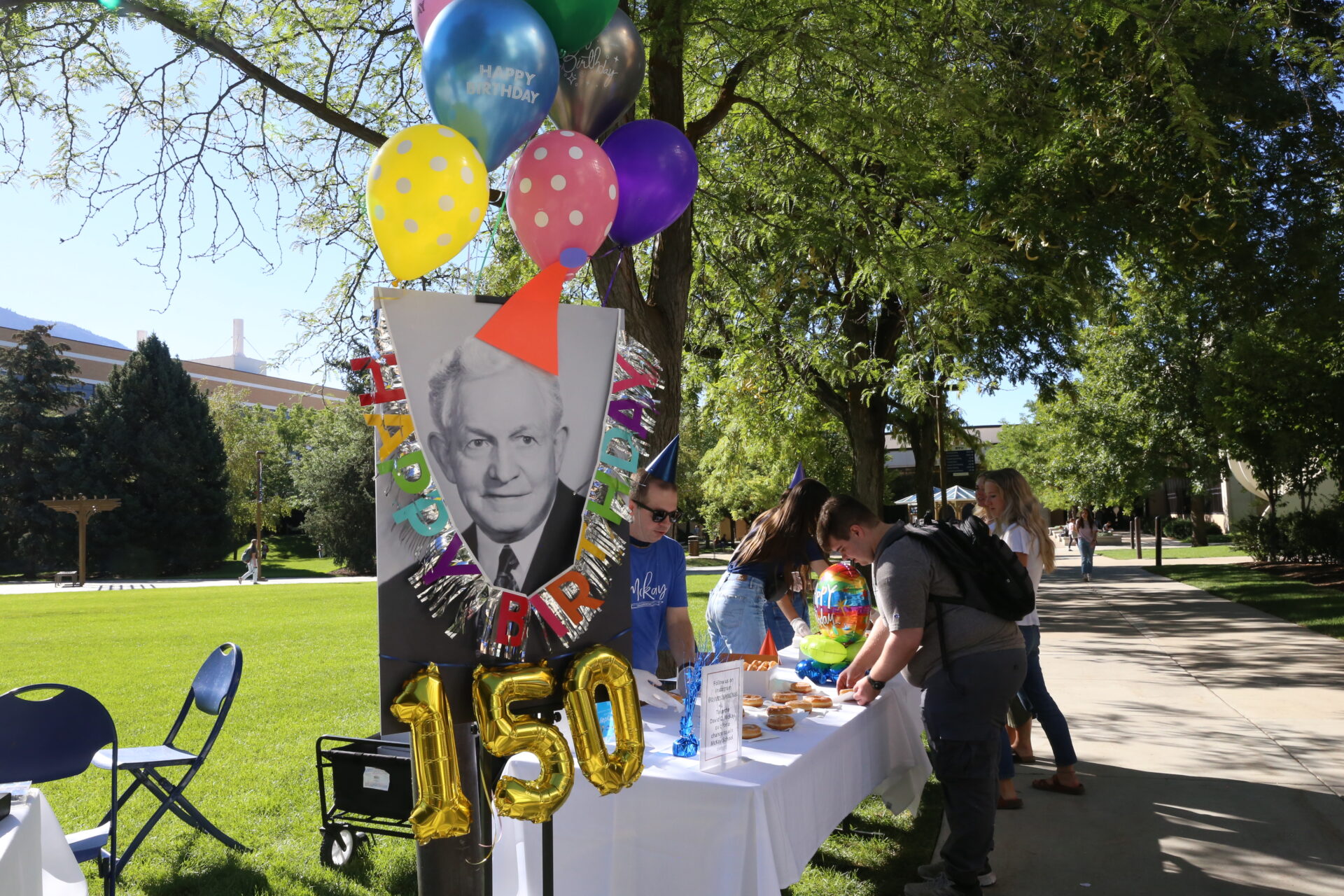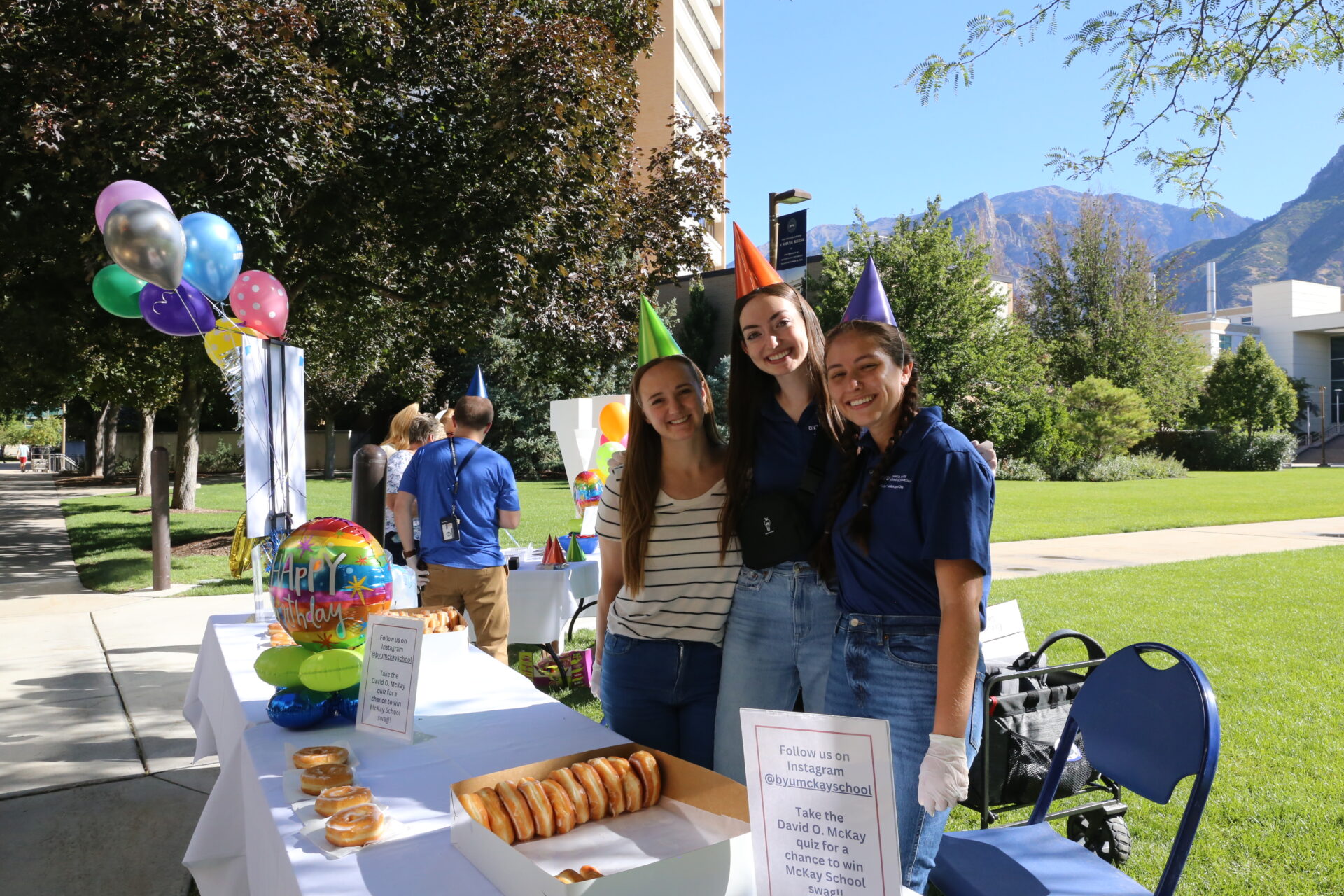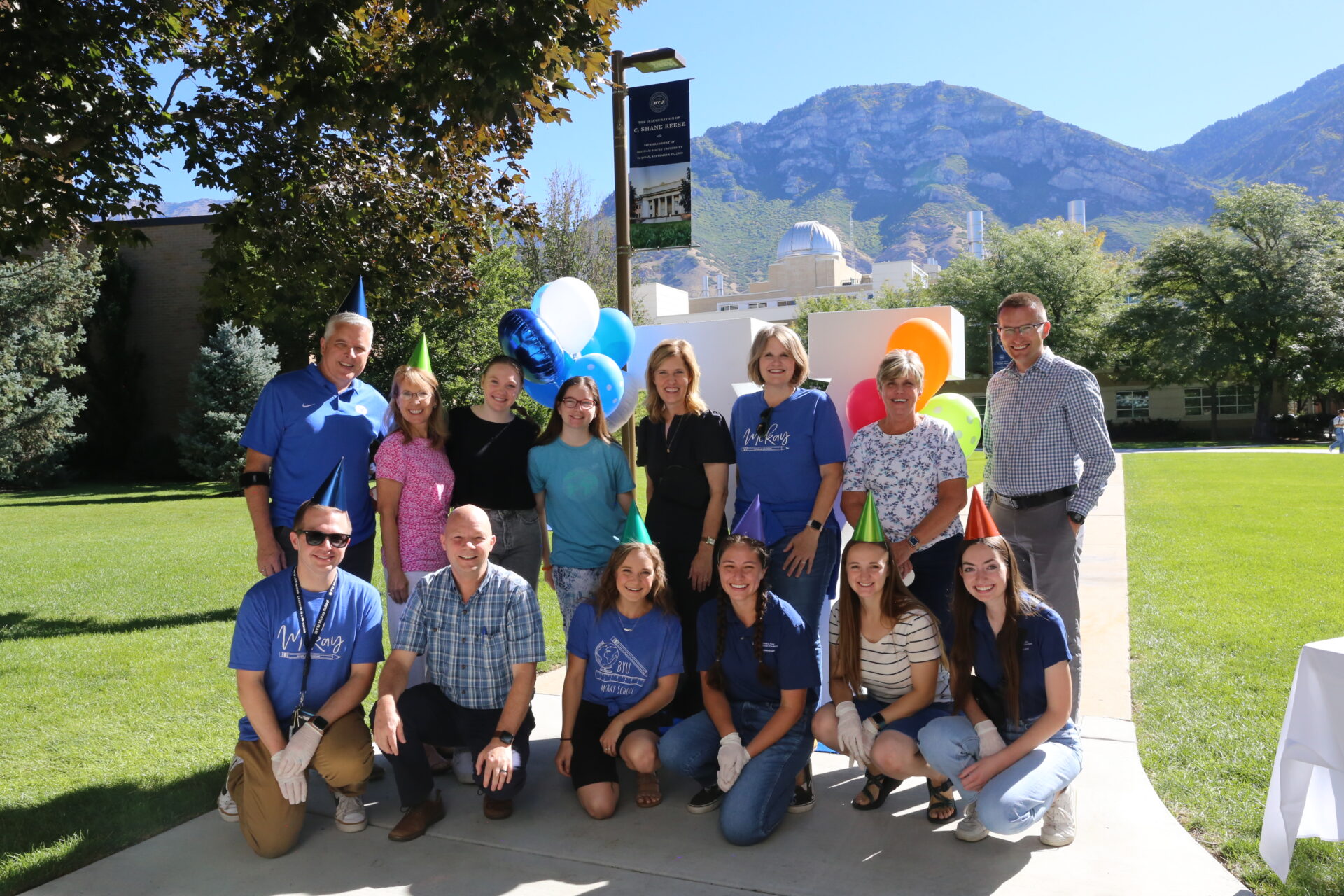
Students and faculty of the BYU McKay School of Education gathered on Friday, Sept. 8 for donuts and prizes in celebration of David O. McKay’s 150th birthday.
Booths outfitted with McKay school pins, stickers and trivia dotted the quad as education students invited all on campus to learn more about their school’s namesake.
The McKay School of Education, which offers 26 majors and 23 minors within its program, adopted David O. McKay as its namesake in 1996. McKay, a former educator and prophet for The Church of Jesus Christ of Latter-day Saints, “highlights the marriage of two values: rigorous education and gospel-centered learning,” according to the McKay School’s website.

Born in Huntsville, Utah, in 1873, McKay was the oldest of six children. While he is widely known for serving as an apostle for 45 years and eventually becoming the ninth President of The Church of Jesus Christ of Latter-day Saints from 1951 to 1970, his legacy goes much deeper.
“When I think of David O. McKay and education, I think he represents hope in the future because he was always talking about the impact that teachers can have, not just in the classroom but in society,” Sarah Clark, an Associate Dean of the McKay School of Education, said. “Whether it’s a teacher in a classroom or a speech language pathologist, education is a way that you can directly impact society — we see that every day.”
McKay’s love for education began with reading from a young age and propelled him into a career as a teacher and principal in Utah. According to Andrew Devey, Public Relations and Communications Manager of the McKay School of Education, McKay played a pivotal role in shaping Utah’s educational system. Institutions such as Utah Valley University, Weber State and BYU have honored him with buildings that strive to preserve his legacy.
Throughout his life, McKay advocated for the societal benefits of public education. Ashley Roberts, a junior studying special education in the McKay School, shares David O. McKay’s appreciation and passion for public education.
“I love the McKay school,” Roberts said. “I want to be a teacher because I love children and I want to help them, especially those with disabilities. I want to be the person that sees them as a child of God and helps them reach their potential.”

McKay’s vision of education as a means to enlarge both mind and spirit resonates with the aims of a BYU education.
“Here at BYU, we are really trying to integrate things that are intellectually enlarging as well as spiritually strengthening, (and) I think David O. McKay was an exemplar in that,” Charles Graham, an Associate Dean of the McKay School of Education, said. “He was a prophet of God, but he also highly valued public education and felt like it was a vocation that was essential to the future of our nation and the world.”
Considering what David O. McKay might think of the McKay School of Education today, Graham believes McKay would be proud of the work the school is doing and the students choosing to go into education.
“It’s a very challenging field to go into, but very rewarding because you’re working with people, you’re working with youth, you’re working with children;you’re making a huge difference in their lives and he would be proud of that.”
Echoing his words, Clark also believes McKay would be proud that BYU has an education program focused on preparing teachers to bring “the spirit of the Lord” into their classrooms.




